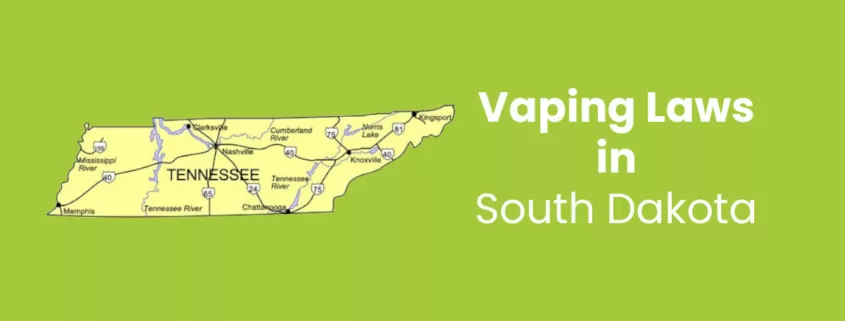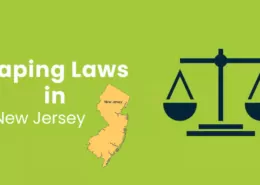Vaping Laws in Tennessee: Your Comprehensive Guide 2025
From the vibrant music scene of Nashville to the serene landscapes of the Great Smoky Mountains, Tennessee is a state of rich culture and dynamic change. In recent years, this dynamism has extended to its public health policies, particularly concerning the regulation of vaping products. The state has dramatically overhauled its approach, implementing comprehensive new taxes, stringent enforcement mechanisms, and a sophisticated product registry system that significantly impacts consumers, retailers, and manufacturers. This guide provides an in-depth look at Tennessee’s current vaping laws, helping you navigate the rules with clarity and confidence.
Is Vaping Legal in Tennessee?
Yes, vaping is legal for adults aged 21 and over in Tennessee. However, it is subject to a robust and recently strengthened set of regulations governing who can buy these products, where they can be used, how they are taxed, and which specific products are permitted for sale in the state.
What Tennessee Considers a Vapor Product
To ensure comprehensive regulatory coverage, Tennessee law provides specific definitions for vaping products. Under Tenn. Code Ann. § 39-17-1503(12), a “vapor product” is broadly defined to include any noncombustible product containing nicotine that employs a heating element, power source, or electronic circuit to produce vapor from a solution. This encompasses e-cigarettes, e-cigars, e-pipes, and their cartridges. The definition of “liquid nicotine” is also specified, though it excludes prefilled, manufacturer-sealed cartridges not intended to be opened by the consumer, which are subject to separate packaging rules. This framework ensures that a wide range of devices and consumables fall under state control.
Age Restrictions: Strictly 21 and Over
Tennessee enforces a minimum legal sales age of 21 for purchasing, possessing, or using any vapor product, aligning with the federal “Tobacco 21” law.
Tennessee state implemented a universal carding requirement on July 1, 2025, which is among the strictest in the nation. Retailers are now mandated to demand proof of age from any customer who appears to be under 50 years old. This is a substantial increase from the previous 30-year threshold and represents a major shift toward more rigorous age verification practices. A valid, government-issued photo identification is mandatory for all such sales.
Penalties for underage possession by individuals aged 18-20 are relatively modest, typically involving civil fines of $10-$50 and potential community service for repeat violations. However, the state holds parents and guardians liable for minors under 18 found with vaping products. All vaping products found in the possession of underage individuals must be seized by law enforcement as contraband.

Where Vaping is Prohibited in Tennessee
Tennessee’s approach to public vaping is comprehensive, treating it identically to traditional smoking in most public spaces.
Tennessee’s Non-Smoker Protection Act
Tennessee’s Non-Smoker Protection Act (also known as the Clean Indoor Air Act) has been amended to include vapor products in its definition of “smoking”. This means that vaping is prohibited in all enclosed public places where traditional smoking is also banned. These locations include, but are not limited to:
- Workplaces (both public and private).
- Restaurants and bars.
- Retail stores, banks, and laundromats.
- Government buildings.
- Healthcare facilities.
- Educational facilities.
- Hotels and motels (which must designate at least 75% of rooms as smoke/vape-free).
Specific Location Bans, Including Schools and Universities
The law places a particular emphasis on protecting youth in educational environments. Vaping is strictly prohibited in all educational facilities, including K-12 schools, childcare centers, and youth development centers. This ban extends to school grounds, creating a 100-foot buffer zone from building entrances, and covers areas like bleachers and public restrooms. Several universities, including Tennessee Technological University and Austin Peay State University, have implemented comprehensive campus-wide bans on vaping.
While most municipalities follow the state law, some have added their own restrictions. For example, Johnson City and Spring Hill prohibit vaping in all city parks.
Ecigator is one of the well-known vape brands spun off from FM Technology Co., Ltd, it’s an ISO-certified disposable vape manufacturer for OEMs, ODMs, and OBM since 2010. The founder team comes from top firms with more than 10 years of experience in the vaping industry and has devoted thousands of hours to providing users with a better and better experience.
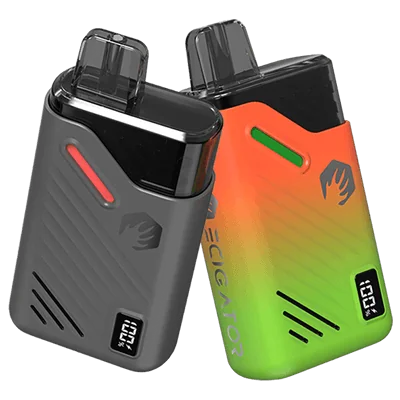
18K Disposable Pod Kit
Disposable Pod Kit – 18ml changeable pod with 650mAh rechargeable battery.
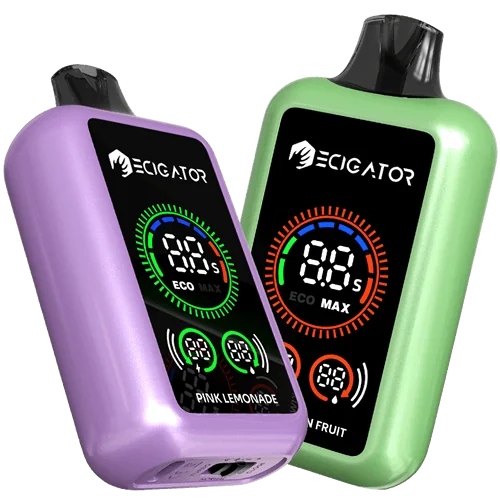
20K with Large Screen
20000 Puffs Disposable Vape with large screen. Normal and Boost working modes.
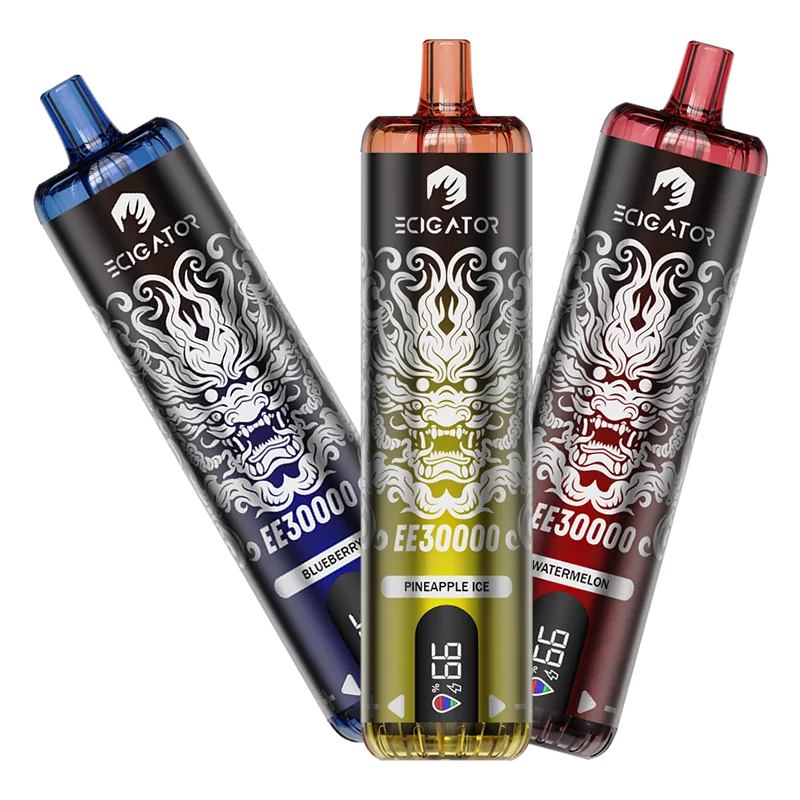
30K DTL Disposable
30K Puffs DTL(Directly to Lung) disposable vape with airflow control and screen.
Selling Vaping Products in Tennessee
The sale of vaping products in Tennessee is a regulated activity, with specific requirements for retailers, though the state’s approach to licensing differs from many others.
Retailer and Distributors Licensing
As of 2025, Tennessee is unique in that it does not currently require retailers to obtain a specific state-level license to sell vapor products. Standard business formation requirements, such as business tax registration ($15 fee) and sales tax permits, apply. However, wholesalers, distributors, and manufacturers must obtain the appropriate tobacco licenses from the Tennessee Department of Revenue, with annual renewals expiring on May 31st.
Sales Practices and Shipping Requirements
- No Self-Service Displays: Self-service displays of vapor products are prohibited. Products must be kept behind the counter or in locked cases that require employee assistance to access.
- Vending Machines: Vapor products can only be sold through vending machines in specific locations that are either non-public areas of businesses, establishments where persons under 21 are denied access, or where the machine is under continuous supervision or requires tokens purchased from staff.
- Online Sales and Delivery: Online retailers must comply with federal PACT Act requirements. Tennessee law also mandates that distributors obtain “affirmative statements” from recipients confirming they are 21 or older before shipping products. All deliveries must require a signature from someone aged 21 or older, with age verified via valid government-issued photo ID.
The PMTA Registry Law (SB 763) in Tennessee
The most significant change to Tennessee’s vaping regulations comes from the passage of Senate Bill 763 / House Bill 968 in 2025. This law establishes a state-managed product directory system that will dramatically reshape the market.
How the Product Directory System Works
This new system is being implemented in three phases:
- Phase 1 (Effective July 1, 2025): The new excise tax and enhanced ID requirements take effect.
- Phase 2 (By January 1, 2026): The state will publish a public Vapor Product Directory listing all products authorized for sale.
- Phase 3 (Effective January 1, 2027): Full enforcement begins. It will be illegal to sell any vaping product not listed in the official directory.
To qualify for the directory, manufacturers must register their products with the Tennessee Department of Revenue by August 1, 2025, and certify that their products either have FDA marketing authorization or had a Premarket Tobacco Product Application (PMTA) pending with the FDA as of September 9, 2020. Given that the FDA has only authorized 34 e-cigarette products to date (mostly tobacco and menthol flavors), this law will effectively function as a de facto ban on most flavored and disposable vapes currently on the market.
Advertising and Packaging Restrictions
Tennessee law prohibits vaping advertisements that appeal to children, including content that mimics candy, toys, or cartoons. Billboard advertising is specifically prohibited within 1,000 feet of schools, churches, daycares, or substance abuse treatment facilities. All liquid nicotine containers must be sold in child-resistant packaging, though pre-filled, sealed cartridges are exempt.
Taxation of Vaping Products
Effective July 1, 2025, Tennessee’s new vaping excise tax system establishes a dual structure:
- A 10% tax on the wholesale cost price for open-system vapor products (e.g., bottled e-liquids, refillable devices).
- A $0.07 per milliliter tax for closed-system devices (e.g., pre-filled pods or cartridges).
This tax is applied at the wholesaler/distributor level and is in addition to the standard 7% state sales tax (plus any applicable local sales taxes) applied at retail. The new excise tax is projected to generate approximately $16 million in annual revenue, with 12.5% allocated to the Tennessee Alcoholic Beverage Commission (TABC) to fund enhanced enforcement activities.

ECIGATOR
Ecigator is one of the well-known vape brands spun off from FM Technology Co., Ltd, it’s an ISO-certified disposable vape manufacturer for OEMs, ODMs, and OBM since 2010. The founder team comes from top firms with more than 10 years of experience in the vaping industry and has devoted thousands of hours to providing users with a better and better experience.
Enforcement and Penalties
Tennessee has implemented exceptionally severe penalties for violations, particularly for underage sales of vapor products, which are now harsher than those for traditional tobacco.
- Underage Sales Penalties (Vapor Products):
- First offense: $2,500 fine.Second offense: Minimum $20,000 fine and mandatory license revocation.
- Product Directory Violations: Retailers selling products not listed in the state directory face escalating fines, starting at $500 per unlisted product for a first violation and rising to $1,500 plus license revocation for a third violation. Manufacturers face a civil penalty of $10,000 per unlisted product offered for sale.
- Advertising Violations: Fines start at $2,500 for a first offense and rise to $20,000 plus license loss for subsequent violations.
The TABC, now funded by vape tax revenue, will conduct at least two unannounced compliance checks per retailer annually, with follow-up inspections required within 30 days of any violations.
Conclusion:
Tennessee’s 2025 legislative overhaul has transformed its vaping regulations from a relatively standard framework to one of the most comprehensive and strictly enforced in the nation. Retailers must prepare for the phased implementation of the product directory, ensure all products are FDA-authorized, implement the enhanced age verification system, and navigate the new tax structure. For consumers, the changes will mean reduced product availability, particularly for flavored and disposable vapes, but also stronger protections against illicit and unregulated products. Tennessee’s approach will undoubtedly serve as a key test case for other states considering similar comprehensive vaping regulations.
References
- TN Department of Agriculture – Halting Tobacco Sales to Minors
- Lewis Herald – Legislation to increase vape regulations…advances (March 2025)
- TN Department of Revenue – Notice #25-06: Tobacco and Vapor Products (May 2025)
- TN Department of Revenue – News: Vapor Products (May 2025)
- Ecigator News – Tennessee Vape Law: Harshest Fines, New Directory
- Malaysia Negeri Sembilan Backs Vape Ban, Awaits Clear Laws - August 5, 2025
- Is It Illegal to Vape or Smoke While Driving in Massachusetts? - August 5, 2025
- Austria Plans to Ban Disposable E-Cigarettes - August 5, 2025

